Is the rapid change in customer needs, churn rates, and product portfolios challenging your marketing team?
If you’re struggling to keep up with your growing SEO strategies, you are not alone.
On September 15, I moderated a Search Engine Journal webinar sponsored by Rock Content and presented by Dan Taylor, Head of Research and Development at SALT.agency and a VIP Contributor here at Search Engine Journal.
Dan shared a number of strategies for scaling and growing your enterprise SEO strategy that you can put to work for your own organization today.
Check out the highlights and key takeaways below.

What is Edge SEO?
Within the broader scope of technical SEO, edge SEO utilizes serverless technologies to execute code as it passes through a Content Delivery Network (CDN). This creates a “middle ground” of processes for implementing SEO without impacting website infrastructure.
By using these solutions, website owners, marketing teams, and non-developers can update content and deploy technical SEO components with almost one click and minimal DevOps involvement and cost.
It’s essential to keep the website development team involved in all conversations and planned deployments. This ensures that updates continue to complement the existing and planned codebase and don’t cause conflicts and other bugs.
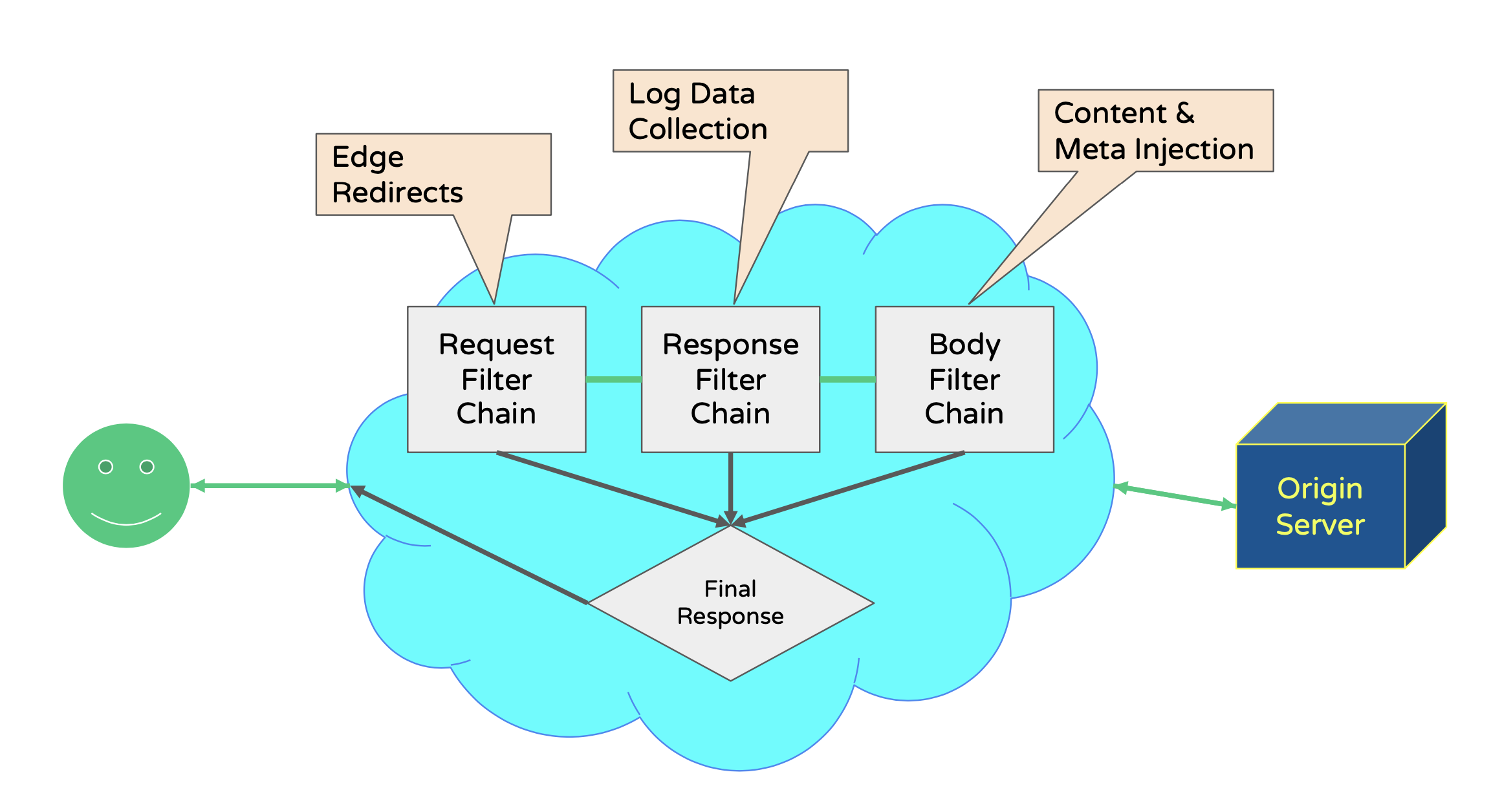
Edge SEO Process Automation
How it works:
When a user requests a URL, it will typically go through some middleware (usually a Cloud CDN).
The Cloud CDN will have cached versions of the actual website from your origin server or hosting.
Through the CDN, you can see that request coming from a URL.
You can use a combination of filter chains to receive a request-response on the body.
The filter chains allow you to implement different things at different stages.
Potential Applications & Automations
These applications are designed for when there is no other suitable alternative for implementation.
The application is defined in several ways, ranging from lead time, opportunity cost, platform capabilities, or support from other third parties.
Several applications can be implemented as a band-aid while the “hard code” implementation progresses through the JIRA board to realization.
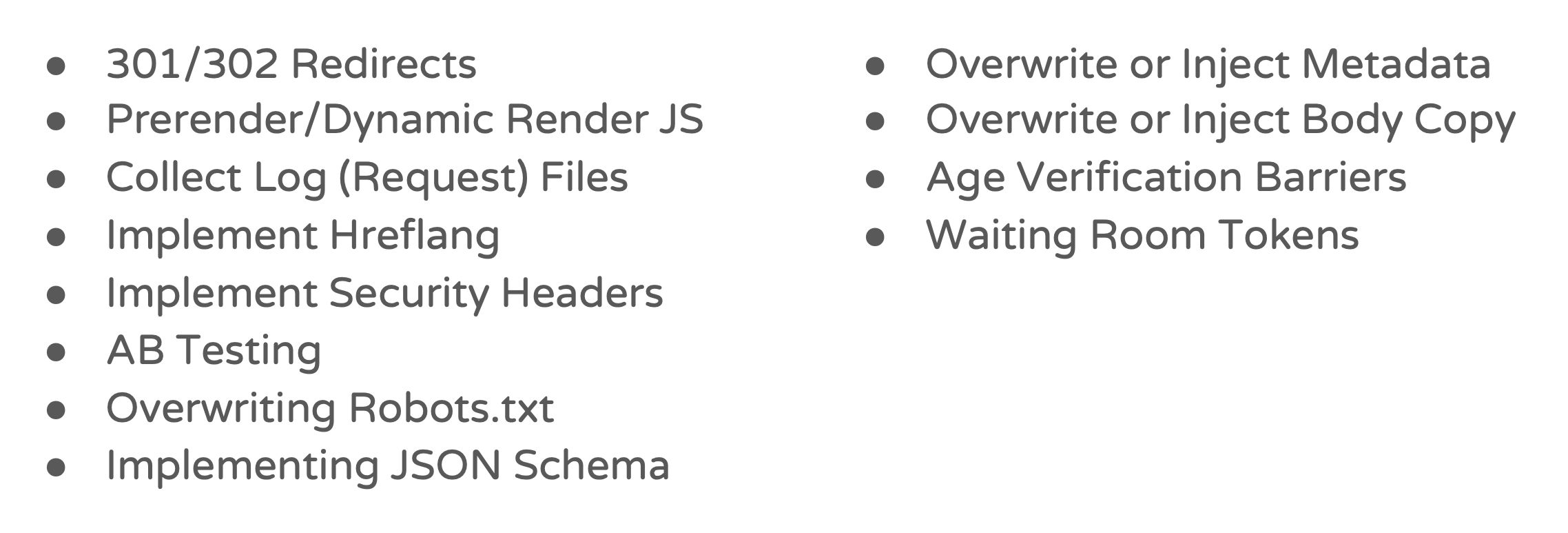
Dynamic Title Tags
With Google now rewriting title tags, you should still strive to make them as good as possible.
CDNs are capable of dynamically rewriting them when requested.
In this way, you’re automating a possible competitive advantage in the SERPs.
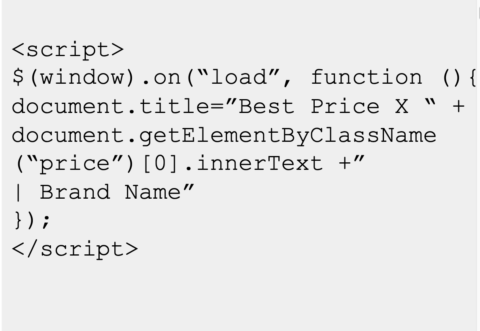
JavaScript Rendering
Google supports dynamic rendering with its Chrome browser.
You can control which pages are being pre-rendered, which means you’re not pre-rendering or dynamic-rendering individual pages on the fly.
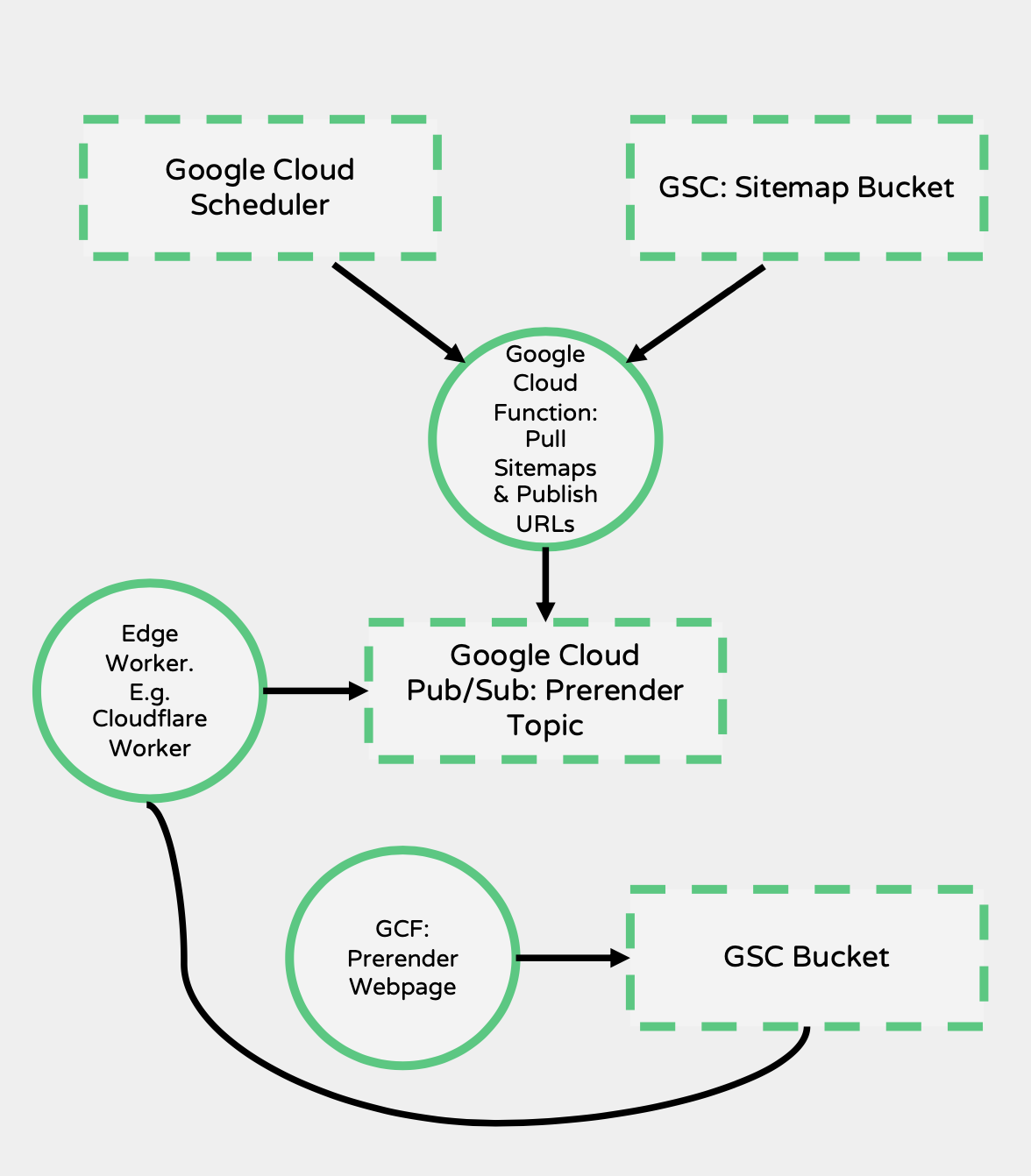
Edge SEO can be worth exploring in helping…
- Improve technical performance.
- Bandaid technical issues while the actual fix is in the dev queue.
- Improve user experience.
- Improve data collection and site use/crawlability visibility.
Here’s a flowchart to determine if you should include developers and other stakeholders in your edge SEO efforts.
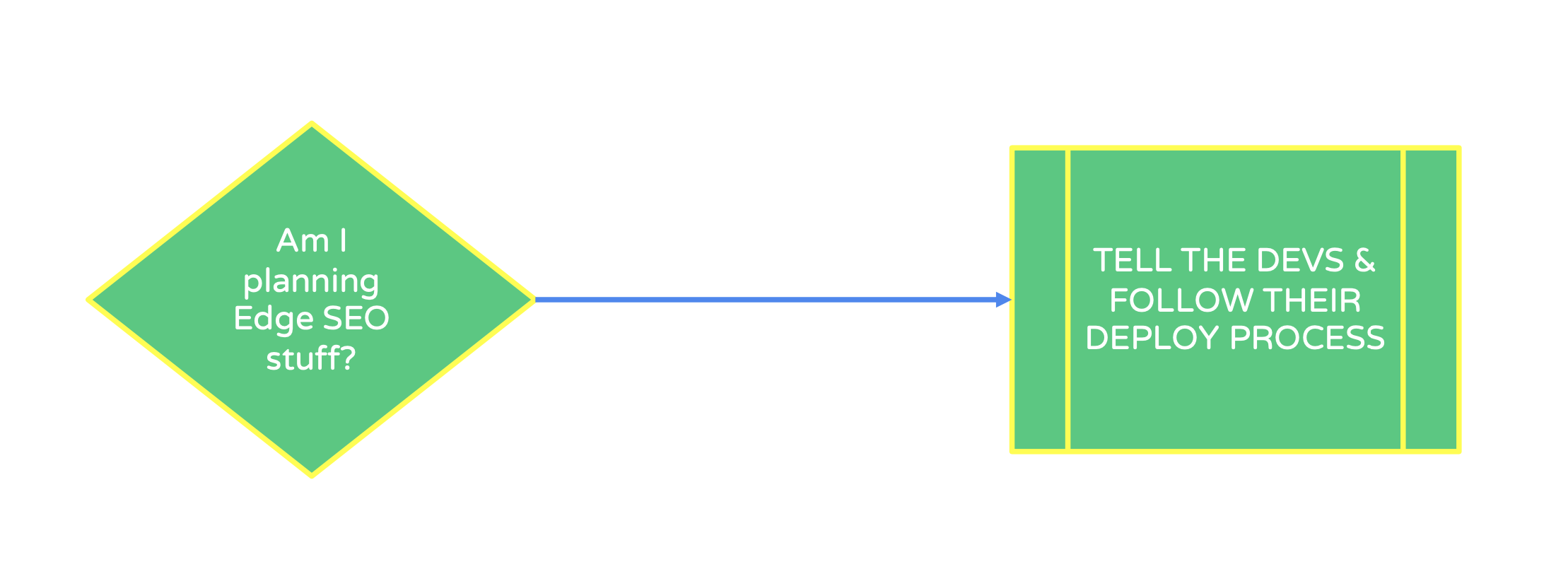
All developers on your deployments will have a predefined process.
Even though you might be wanting to use this to circumvent developers, it’s vital that you use rare deployment processes and they’re aware of what’s going on.
Otherwise, you can introduce a total number of bugs, which have certain similarities, which will cause more issues and more opportunity costs down the line.
5 Edge SEO Automations & Applications for E-commerce
We know that in e-commerce, all industries have seasonality.
Still, for most B2C ecommerce sites, the year’s final quarter can be enormous in terms of revenue and introduce new customers to the brand.

This goes beyond user acquisition and needs to incorporate retention of existing users. You can use automation to lay the positive user experience foundations at scale, to entice new users to come back.
This requires that you create precise messaging and a realistic (and positive) user experience forecast of what they can expect from your website and product fulfillment. Here are some ways to do that.
1. Managing Peak Traffic & Customer Experience
During major sales events or known high traffic periods such as Black Friday and the Cyber days, balancing traffic load and user experience can be difficult for some websites (depending on the stack). The last thing you want to do is provide a negative experience.
While waiting room tokens may not necessarily improve your rankings, you can bring this to the table as an option to help improve conversion and experience around these times.
2. Modifying Content Based on Stock & Time
Performing a search and navigating to a product page takes user effort. For example, suppose they navigate to a page out of stock.
In that case, a negative user experience can damage this specific user’s session and any future interaction the user may have with the brand.
3. Dynamic Content: Interstitials
Using workers, implementing a rule for product pages (and category pages) to present an interstitial/non-intrusive pop-up based on stock availability and time of the day (following day delivery cut-off times) can help you with conversion and improving user experience.
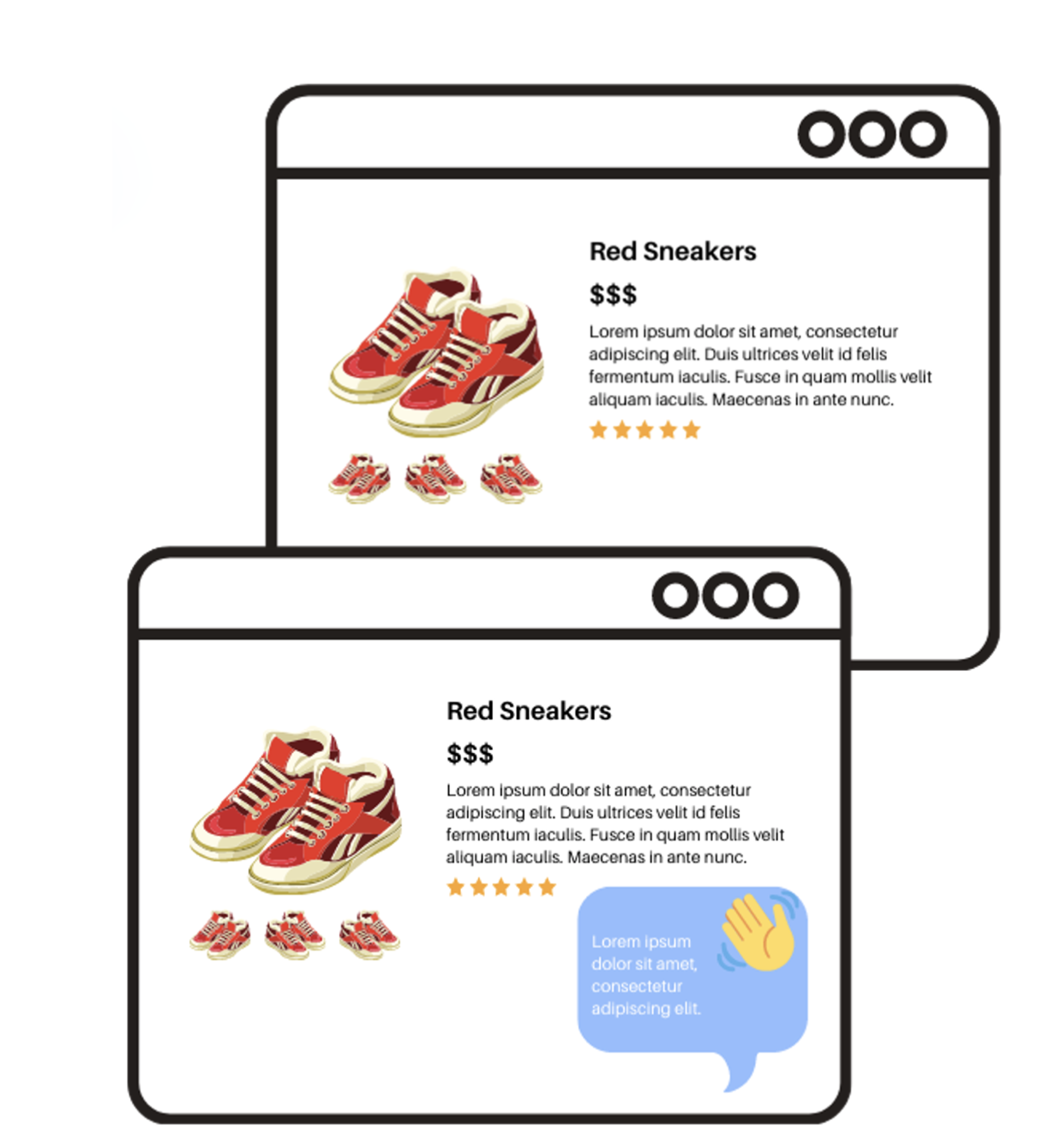
4. Dynamic Content: Out of Stock
Out of stock messaging can oftentimes trigger Google to treat the PLP as a soft 404 – but you still want it to rank.
Using Edge, and based on page criteria, page copy and elements can be amended to maintain a customer value proposition, positive user experience, without the page soft 404-ing.
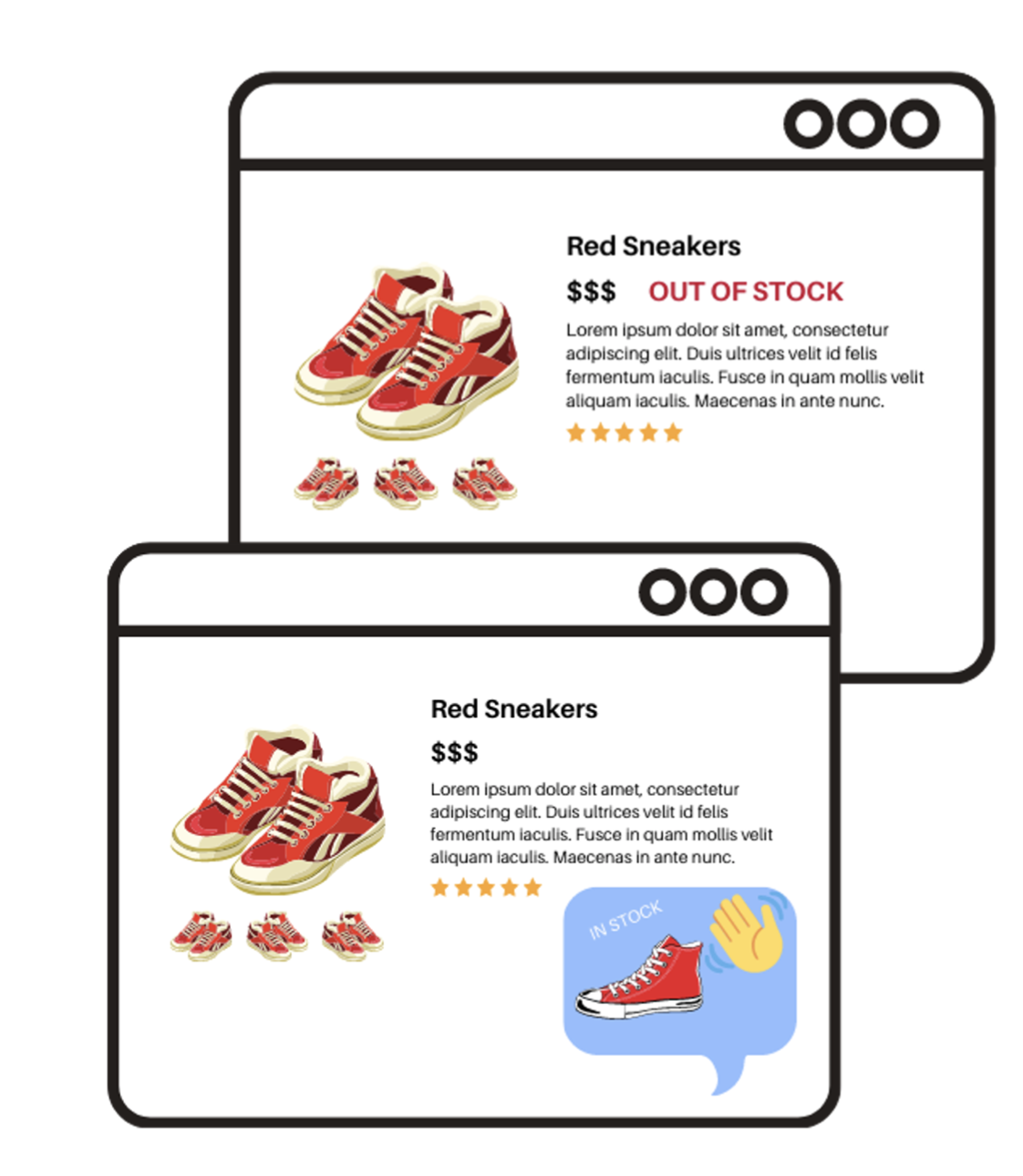
5. Waiting Room Tokens
You can build out with Fastly’s Compute@Edge, which many companies have done. In addition, you can also use the Amazon API Gateway, Lambda, DynamoDB, and a token service.
Many users all request the same URL(s), the sales URLs, and landing pages in a short period to take advantage of the low prices and stock availability.
Users are given a waiting room token and held on the Edge. This auto-refreshes, and if the user continues to refresh the device and browser, they will retain the same token and not make multiple requests to the origin.
Once allowed, the user can navigate the website, and subsequent requests go to the origin.
Edge SEO techniques can be effective short-term methods to improve your goal-hitting and maximizing revenue generation from peak holiday traffic.
With overlays and agility in changing content, you can implement cross-sell and up-sell tactics.
Key Takeaways
- Use Edge SEO to automate and improve processes in product management (from an SEO perspective).
- Edge SEO techniques can help you achieve your goals while maximizing revenue generation during peak revenue-generating periods.
- Knowing where and how to automate processes will help you scale your SEO strategy and better serve individual customers even as you grow.
Are you interested in boosting your SEO strategy with content experiences your audience will love? Request a demo from Rock Content.
Check out the full webinar to learn more from Dan Taylor on entity metrics, leveraging entities in your SEO strategy, and what his team has learned about using entities as part of an effective keyword research process.
[Slides] How to Scale and Grow your Enterprise Technical SEO Strategy
See the SlideShare below.
Join Us For Our Next Webinar!
AI-Organized SERPs & Overviews: How To Win Visibility In The New Landscape Of SEO
Join us for a session focused on AI Overviews and AI-organized SERPs, where we’ll be breaking down the newest developments. We’ll show you the biggest takeaways from STAT’s latest research, and demystify this evolving topic with practical advice that you can implement right away.
Image Credits
Featured Image: Viktoria Kurpas/Shutterstock
All screenshots taken by author, September 2021


